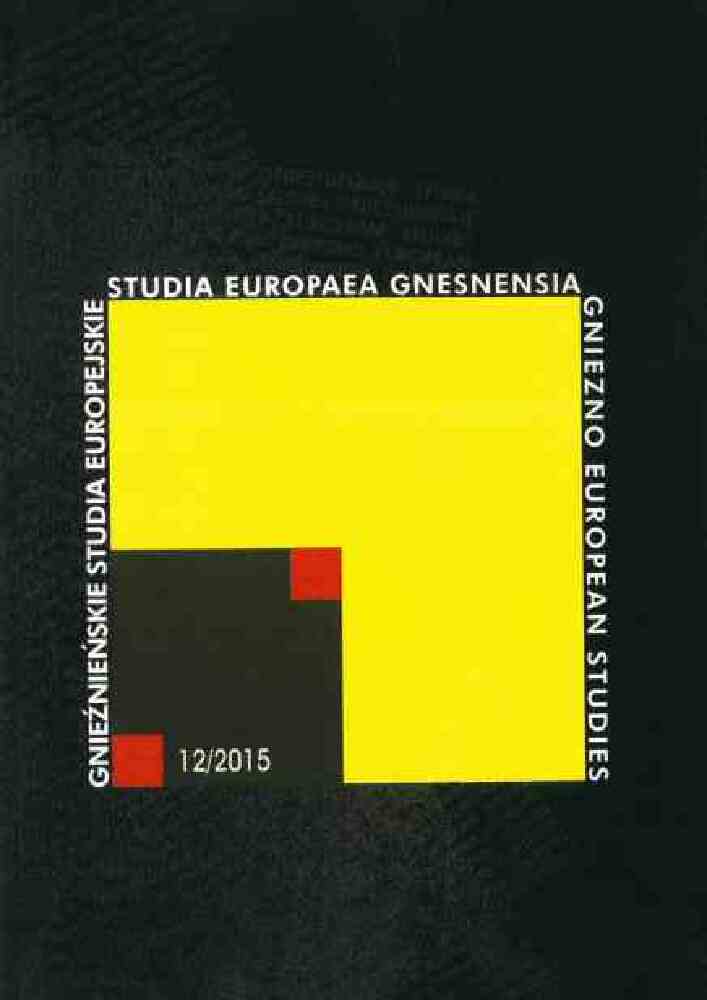Abstrakt
The paper analyses all early Severan coinage commemorating the ideas of concord (concordia) in the state, in particular the concepts of marital concord (concordia felix), perpetual concord (perpetua concordia) and eternal concord (concordia aeterna ), against the backdrop of the simultaneously propagated idea of aeternitas Imperii as well as the ideology and policy of succession of the ruling house.
Bibliografia
Alexandridis A., Die Frauen des römischen Kaiserhauses von Livia bis Iulia Domna in statuarischer, epigraphischer und numismatischer Überlieferung, Heidelberg 1996.
Alexandridis A., Die Frauen des römischen Kaiserhauses. Eine Untersuchung ihrer bildlichen Darstellung von Livia bis Iulia Domna, Mainz 2004.
Alföldy G., Fasti Hispanienses. Senatorische Reichsbeamte und Offiziere in den spanischen Provinzen des Römischen Reiches von Augustus bis Diokletian, Wiesbaden 1969.
Aust E., Concordia, RE IV, 1901, col. 831-834.
Balbuza K., Aeternitas Augusti. Kształtowanie się i rozwój koncepcji wieczności w (auto)prezentacji cesarza rzymskiego (od Augusta do Sewera Aleksandra), Poznań 2014.
Balbuza K., Personifikacja Aeternitas na monetach rzymskich propagujących ideę wieczności cesarza, StEurGn 8, 2013, s. 7-27.
Balbuza K., Triumfator. Triumf i ideologia zwycięstwa w starożytnym Rzymie epoki cesarstwa, Poznań 2005.
Béranger J., Remarques sur la Concordia dans la propagande monétaire impériale et la nature du principat, [w:] J. Béranger, F. Paschoud, P. Ducrey (red.), Principatus: études de notions et d’histoire politiques dans l’antiquité gréco-romaine, Genève 1973, s. 367-382.
Bergmann M., Die Strahlen der Herrscher. Theomorphes Herrscherbild und politische Symbolik im Hellenismus und in der römischen Kaiserzeit, Mainz 1998.
Berrens S., Sonnenkult und Kaisertum von den Severern bis zu Constantin I (193-337 n. Chr.), Stuttgart 2004.
De Arrizabalaga y Prado L., The Emperor Elagabalus: Fact or Fiction, Cambridge 2010.
Franke P.R., Die Homonoia-Münzen Kleinasiens und der thrakischen Randgebiete, Saarbrücken 1997.
Hersch K.K., The Roman Wedding: Ritual and Meaning in Antiquity, Cambridge 2010.
Hölscher T., Concordia, LIMC V, 1, 1990, s. 479-498; LIMC V, 2, 1990, s. 333-340.
Instinsky H.U., Kaiser und Ewigkeit, Hermes LXXVII 1942, s. 313-355 (=Ideologie und Herrschaft in der Antike, red. H. Kloft, Darmstadt 1979, s. 417-472).
Janiszewska D., Wojna domowa w Rzymie w latach 193-197, Poznań 2010.
Kienast D., Römische Kaisertabelle. Grundzüge einer römischen Kaiserchronologie, wyd. 5, Darmstadt 2011.
Kluczek A., Concordia ordinum, czyli o społecznych funkcjach pieniądza w Cesarstwie Rzymskim, [w:] XIV Ogólnopolska Sesja Numizmatyczna. Upieniężnienie. Kiedy moneta staje się pieniądzem, Nowa Sól 2011, s. 21-42.
Królczyk K., Der Germanenfeldzug des Kaisers Caracalla im Lichte der epigraphischen Quellen, [w:] S. Ruciński, K. Balbuza, K. Królczyk (red.), Studia Lesco Mrozewicz ab amicis et discipulis dedicata, Poznań 2011, s. 203-220.
Królczyk K., Propagatio Imperii. Cesarstwo Rzymskie a świat zewnętrzny w okresie rządów Septymiusza Sewera (193-211 r.), Poznań 2014.
Lobur J.A., Consensus and Concordia and the Formation of Roman Imperial Ideology, New York 2008.
Manders E., Coining Images of Power. Patterns in the Representation of Roman Emperors on Imperial Coinage, A.D. 193-284, Leiden 2012.
Mattingly H., Sydenham E.A. (red.), The Roman Imperial Coinage, IV, 1: Pertinax to Geta, London 1936.
Mennen I., The Image of an Emperor in Trouble. Legitimation and Representation of Power by Caracalla, [w:] L. de Blois, P. Funke, J. Hahn (red.), The Impact of Imperial Rome on Religions, Ritual and Religious Life in the Roman Empire, Proceedings of the Fifth Workshop of the International Network Impact of Empire (Roman Empire, 200 B.C.-A.D. 476), Munster, June 30-July 4, 2004, Leiden-Boston 2006, s. 253-267.
Mikocki T., Zgodna, pobożna, płodna, skromna, piękna... Propaganda cnót żeńskich w sztuce rzymskiej, Wrocław 1997.
Morawiecki L., Pax et Concordia — polityczne i religijne aspekty personifikacji w republikańskim Rzymie, [w:] R. Sajkowski (red.), Religia i polityka w świecie antycznym, Ostróda 2005, s. 132-156.
Noreña C., Hadrian’s Chastity, Phoenix 61, 2007, s. 296-317.
Noreña C., Imperial Ideals in the Roman West: Representation, Circulation, Power, Cambridge 2011.
Pera R., Homonoia sulle monete da Augusto agli Antonini, Genova 1984.
Peter R., Concordia, LGRM I, 1884-1890, s. 914-922.
Rowan C., Divine Ideology and the Visualisation of Imperial Power in the Severan Period, Cambridge 2012.
Salz C., Die Mondsichel der Kaiserin, [w:] L. De Blois, P. Funke, J. Hahn (red.), The Impact of Imperial Rome on Religions, Ritual and Religious Life in the Roman Empire. Proceedings of the Fifth Workshop of the International Network Impact of Empire (Roman Empire, 200 B.C.-A.D. 476), Münster, June 30-July 4, 2004, Leiden-Bristol 2006, s. 232-237.
Shapiro H.A., Homonoia, LIMC V, 1, 1990, s. 476-479.
Vacano O., Typenkatalog der antiken Münzen Kleinasiens, red. D. Kienast, Berlin 1986.
Varner E.R., From Caligula to Constantine: Tyranny and Transformation in Roman Portraiture, Atlanta 2000.
Varner E.R., Mutilation and Transformation. Damnatio Memoriae and Roman Imperial Portraiture, Leiden 2004.
Walsh P.G., Livy: His Historical Aims and Metods, Oxford 1961.
Zanzarri P., La concordia romana: politica e ideologia nella monetazione dalla tarda repubblica ai Severi, Rome 1997.
